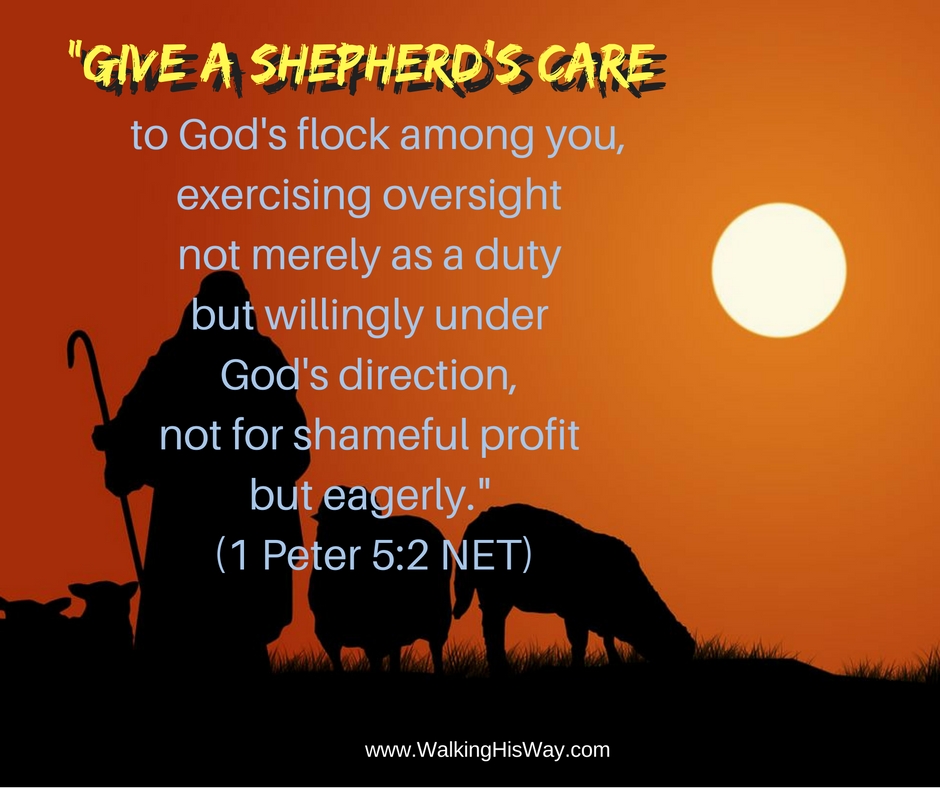 1 Peter 5:2, “Give a shepherd’s care*~ to God’s flock among you, exercising oversight not merely as a duty but willingly under God’s direction, not for shameful profit but eagerly.”
1 Peter 5:2, “Give a shepherd’s care*~ to God’s flock among you, exercising oversight not merely as a duty but willingly under God’s direction, not for shameful profit but eagerly.”
Although this command is directed to the “elders who are among you” (1 Pet 5:1), everyone is responsible for the health and growth of “God’s flock.” In Hebrews 13:17, the author writes, “Obey those who rule over you . . . for they watch for your souls, as those who must give account. Let them do so with joy and not with grief, for that would be unprofitable for you.”
Church leaders will have to give account for their leadership of God’s people, but the flock can be a blessing or a cause of “grief.”
The command to “immediately decide from now on to give a shepherd’s care” means to “tend to, lead, [or] care for” God’s people. This command is similar to Jesus’s final recorded command to Peter: “Shepherd my sheep” (Jn 21:16); believers are to be led by godly leaders and fed by the teaching of God’s word.
The essential focus of this command is that leaders are responsible to care for “God’s flock.” The flock is the personal property of Jesus Himself. Believers “once were not a people, but now the people of God, who had not obtained mercy but now have obtained mercy”
(1 Pet 2:10).
To the elders at Ephesus, Paul gave his final charge: “Therefore take heed to yourselves and to the flock, among which the Holy Spirit has made you overseers, to shepherd the church of God which He purchased with His own blood” (Acts 20:28).
The value of an object is determined by its price; the church cost the blood and life of the God–Man, Jesus Christ—-an infinite price. Great care must be taken to protect His most valuable and costly possession.
If the leader is a man of God, he is characterized by selfless service and does not focus on materialism—-that is, “not for shameful profit but eagerly.” However, he should be adequately compensated (1 Cor 9:7–-14; 1 Tim 5:17–-18). The church is to eliminate any materialistic temptation by taking care of his material needs just as he takes care of their spiritual needs.
“Thank You, Lord, for Your church, which is Your body made up of fragile believers who need each other. Help me be an encouragement to my pastor and partner with him in caring for Your people.”
